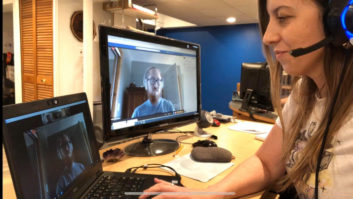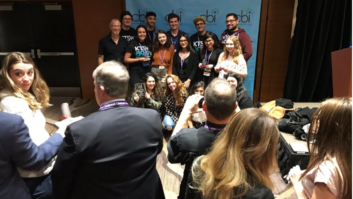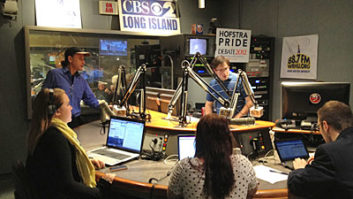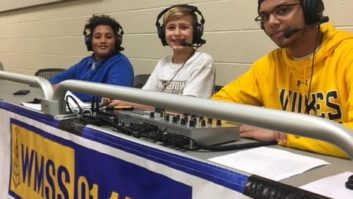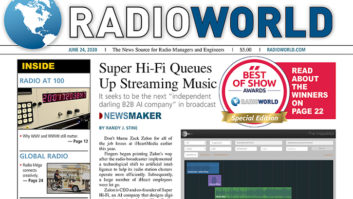The author is founder, College Radio Foundation and College Radio Day.
The impact of the coronavirus (COVID-19) has been significant. The difficult situation that many educational institutions find themselves in, of closing campus access to the community that uses it, affects college radio uniquely, and requires us to ask some questions of how we can continue to operate, and what we should do. For example, what does the current environment demand of college radio, what do we need to do? What are our FCC obligations during this time? How can we all share the burden we face together? How can college radio continue to function and even provide an important reminder to a worried public that radio is a lifeline and source of important information in a time of crisis? On a smaller level, what can college radio demonstrate to a university administration that it is not simply a fun activity, like other student groups on campus, but has a much larger reach beyond the university?
In a press conference on March 17, Federal Communications Commission Chairman Ajit Pai said that “broadcasters are ideally situated to the task” of informing the public about important news updates and developments during this period. When the College Radio Foundation took a group of college radio students to the FCC building in Washington in September 2018, we met with Ajit Pai in person, who said, on record, that college radio “has long been a staple of the campus experience, providing a platform for students to have their voices heard and the opportunity to shape their identities. … College radio has united listeners across the country and throughout the world.” So, college radio has an important role to play, just as other broadcasters are also seeing what they can do at this time.
For our students, the impact from these campus closures has been decisive. From what we have seen so far, there has been a profound loss of social interaction among our students and, because they are no longer able to access the radio station and broadcast as usual, there has been a loss of a creative outlet and means of communication.
[Free: Sign up now for the Radio World NewsBytes e-newsletter.]
The radio station offices are also a place where many students feel a second home-from-home, and the loss of that social space to connect with other students involved with the radio station is upsetting for them. Yet, it’s not just the students who are feeling this. Many people are feeling the anxiety and loneliness of a suddenly enforced period of self-isolation. There is a risk during this time that we can lose some balance in what occupies our thoughts and become too focused on every bit of new information about the coronavirus.
That means we run the risk of decreasing doing other activities that bring us happiness, fun and relaxation.
One recent article in Wired magazine titled “Don’t Go Down a Coronavirus Anxiety Spiral,” suggests that to maintain a healthy mental state, we should “limit how much information [we] consume about the coronavirus outbreak. Try to find a balance between being informed enough to make decisions about your life, but not so overloaded with information that it becomes stressful.” That sounds like reasonable advice.
We need to keep things in perspective, and we need to be calm if we can. My former mentor, Prof. Tim Crook, now president of the Chartered Institute of Journalists in the U.K., asserts that “the media have a responsibility to show leadership, calm, and perspective.” College radio can do that. That calm approach should be reflected in the way we operate our college radio stations right now.
So, I believe that during this time, college radio stations do not need to disappear. There are things that can be done, even when students are not on campus. There is even a possibility that college radio stations could play an important role in providing information to the campus community and the local communities in which they reside and serve. Even with the transmitters shut down, college radio stations, and those that operate them (faculty, staff, students and community volunteers) can still create community and content that can be shared with a wider audience.
College radio can also continue to serve as an important outlet for student expression and creativity, it’s just that we perhaps need to use different tools to do so. There is no reason why college radio needs to be silent during this time. We just need to adapt to these current circumstances and work together to ensure that the medium continues its important work of providing voices not heard anywhere else, and music and programming that no one else will play on the air. Yes, this is a challenging time, but now, more than ever, college radio is up to the task.

